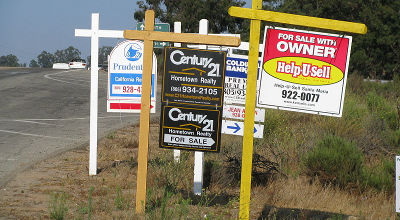Understanding the New Math for Home Affordability
Looking to buy a home? Figuring out how much house you can afford is about to get more complicated as the housing market emerges from crisis.
Right now, market conditions are almost ideal for those who have the income to buy, because interest rates are low and while home prices are rising, they are coming off significant lows. But these ideal terms apply only to those who buy now and plan to stay in a house for 30 years, with a fixed-rate mortgage.
For those who are just thinking about buying, who are considering adjustable mortgages or who might move within the seven-year average ownership period, they could end up back in the same trouble that caused the 2008 housing crisis.
If interest rates rise – and since they are still at historic lows, most forecasts say they eventually will – houses will be less affordable, according to data from real estate site Zillow.com and the Home Affordability Index of the National Association of Realtors reveals. As a result, buyers must consider more than just income relative to cost in calculating how much of a mortgage they can afford.
In fact, there could be significant volatility in the coming years, predicts Stan Humphries, chief economist for Zillow, noting that as soon as mortgage rates creep up, homes will seem more expensive and prices will drop again.
“My concern is that people will be induced to buy now on sale, and then if prices go down in some markets in a year or two because interest rates go up, they could be in a real pickle,” he said.
Paying Less
American homeowners are paying significantly less of their monthly income toward mortgage payments than they did in the pre-bubble years of 1985 to 1999, according to a new study by Zillow.com. They are paying a mere 12.6 percent, down from 19.9 percent in the pre-bubble time frame. During the period before 2000, interest rates ranged from 6 to 13 percent.
At the same time, Zillow’s price-to-income ratio, which measures how much a house costs relative to a person’s income, is almost back to pre-bubble levels. During the tumultuous period from 2000 to 2011, all of these numbers rose quickly, peaked in 2006 and have since been falling.
The data suggests that the time has not passed for homes to be a good buy because they are still very affordable.
Zillow.com is not alone in suggesting it is still a uniquely favorable time for home buyers. Nor is it alone in suggesting the window is not likely to stay open much longer.
The average family has twice the income needed to purchase the typical home with a 20 percent down payment, according to The Home Affordability Index of the National Association of Realtors. The current reading of 206.2 is the third-highest level ever, well above a reading of 100 that means the same family would have exactly the right amount to buy the average home.
The NAR data also shows incomes rising slightly, while Zillow’s shows them stagnant or slightly down.
Historically, this average is somewhere in the middle, says Danielle Hale, director of housing statistics for the NAR.
Today’s high ratio is helping the market recover, but Hale notes that as prices come back and mortgage rates rise, she expects affordability will return to lower levels.
“At this point, even if house prices stay steady, and incomes stay the same, if interest rates go up, affordability would go down,” says Hale.
What Can You Afford?
For those sitting in front of a home affordability calculator, dreaming of buying a new home, these forecasts should alter your math.
“Affordability is based upon the house you’re buying today, not the house in 10 years,” cautions Greg McBride, senior financial analyst at Bankrate.com, which provides many financial calculators. “Unless you’re forecasting skills are spot-on, the calculator is not designed to help under that scenario.”
The typical calculator measures your income, the size of the mortgage and the interest rate to see what monthly payments you can afford. But buyers can get in trouble if they adjust these parameters to get the outcome they want, says McBride, noting that is how owners ended up with more house than they could afford or adjustable interest rates that ballooned their payments during the housing bubble.
Humphries urges people to be conservative when entering their information, especially if they are not buying with a fixed-rate mortgage and might sell any time in the near future.
For those who think they might move in a few years, he says to ask, “Is this still a good decision if I thought prices were not going to rise?”
But that does not mean Humphries does not encourage people to buy now.
“For any buyer who will be in for a long period of time, it’s like homes are on sale right now,” he says. “But the implication is that if you want to get it while the getting’s good, get it now. Homes will look expensive in a few years if interest rates go up.”
Follow us @ReutersMoney or at reuters.com/finance/personal-finance. Editing by Dan Grebler.
© 2013 Thomson Reuters. All rights reserved.













